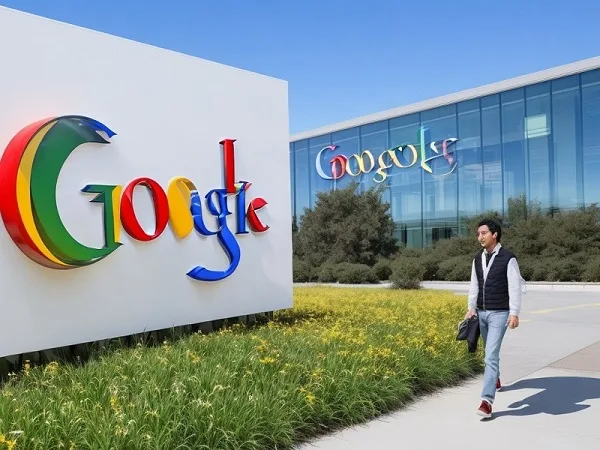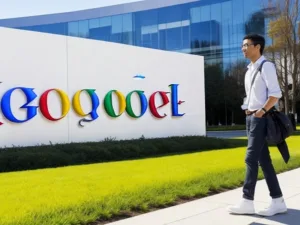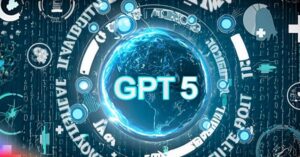Google Hiring Freeze : Introduction
In a surprising move, Google, the tech giant that has been synonymous with rapid expansion and innovation, has recently announced a hiring freeze that has sent ripples of uncertainty across the tech industry. The decision comes amid a backdrop of economic challenges, including rising inflation, geopolitical tensions, and a potential recession. This article delves into the implications of Google’s hiring freeze, its potential reasons, and its impact on the broader tech industry, while also discussing the outlook for the sector in the coming months and years.

The Announcement and Its Scope
Google Takes a Pause: Exploring the Hiring Freeze
In an internal memo, Sundar Pichai, Google’s CEO, explained the reasoning behind the two-week hiring freeze. Pichai emphasized the importance of aligning priorities to ensure long-term growth and success for the company. The freeze applies to all levels and functions within the organization, with the exception of offers that have already been extended.
A Sign of the Times: Tech Industry Facing Economic Challenges
Industry-Wide Ripples: Tech Companies Brace for Uncertainty
Google’s decision to halt hiring for a limited period mirrors the cautious stance of several other tech giants, including Meta, Twitter, and Netflix. The broader tech industry is bracing itself against the headwinds of economic turbulence, with escalating inflation, geopolitical uncertainties like the ongoing conflict in Ukraine, and the looming possibility of a recession. These factors collectively contribute to a climate of uncertainty that compels tech companies to reassess their hiring strategies.
Potential Reasons Behind the Hiring Freeze
Peering Behind the Curtain: Unravelling the Reasons
Several factors might have influenced Google’s decision to implement a hiring freeze. Economic uncertainty is a key consideration, as the tech industry is deeply intertwined with macroeconomic trends. The global economy’s vulnerability to inflation and recession could impact the company’s growth prospects, necessitating a cautious approach to recruitment.
Furthermore, the industry’s rapid pace of innovation might also be slowing down. As technology becomes more intricate and costly to develop, companies face the challenge of maintaining the same level of innovation without compromising quality. This complexity could be one of the reasons behind Google’s more selective approach to hiring.
Implications for Google’s Growth and Innovation
Impact Echoes: Freeze’s Ripple Effect on Google’s Future
The hiring freeze has far-reaching implications for Google’s future growth and innovation. With fewer resources allocated for hiring, the company might find itself constrained in its ability to invest in new projects and ventures. This could potentially lead to slower growth rates and the company missing out on strategic opportunities.
Moreover, attracting and retaining top talent is paramount for sustaining innovation in the tech industry. The hiring freeze could make it more difficult for Google to secure the brightest minds, further impacting its capacity to innovate. The company’s competitors could seize this opportunity to gain a competitive edge.
Broader Impact on the Tech Industry
Industry at a Crossroads: Cascading Effect on Tech Sector
Google’s freeze is likely to set a precedent for other tech companies, possibly leading to a domino effect in the industry. This would exacerbate the tech talent shortage and pose significant challenges to companies looking to maintain or enhance their pace of innovation. The ripple effect of this freeze could stifle the industry’s progress, shifting its focus towards optimizing existing products rather than driving new breakthroughs.
Looking Ahead: Uncertainty and Adaptation
Gazing into the Future: Prospects for the Tech Industry
The tech industry’s trajectory in the coming months and years remains uncertain. The current hiring freeze at Google reflects a period of introspection and recalibration. While it might slow down growth and innovation in the short term, it could also be a necessary step towards ensuring sustainable expansion.
As the industry navigates economic challenges, the most adaptable and resilient companies are likely to thrive. This could lead to a period of consolidation, where stronger companies acquire weaker ones. The outcome will hinge on the industry’s ability to evolve and adapt to the evolving economic landscape.
Conclusion
Google’s announcement of a hiring freeze has sent shockwaves through the tech industry, serving as a testament to the economic challenges faced by the sector. The decision, while impacting Google’s growth and innovation prospects, also reflects a broader caution within the tech landscape. As the industry braces for an uncertain future, the companies that can pivot and adapt to changing circumstances will be the ones that emerge as leaders in the evolving tech landscape.
FAQ: Understanding the Google Hiring Freeze
Frequently Asked Questions
Q1: Why did Google announce a hiring freeze?
A1: Google announced a hiring freeze as a response to economic uncertainty, which includes rising inflation, geopolitical tensions, and the potential of a recession. The company aims to align its priorities and ensure long-term growth amidst these challenges.
Q2: How long will the hiring freeze last?
A2: The initial hiring freeze is set for two weeks, after which Google will revaluate its headcount needs. Depending on the economic situation, the freeze could be extended.
Q3: What impact will the hiring freeze have on the tech industry?
A3: The hiring freeze could trigger a ripple effect across the tech industry, potentially leading to a slowdown in innovation and growth. Other tech companies might follow suit, exacerbating the challenge of acquiring tech talent.
Q4: Will Google continue to hire for critical roles during the freeze?
A4: Yes, Google will continue to hire for critical roles during the freeze, but with a more selective approach. The focus is on ensuring strategic growth and success.
Q5: How will the hiring freeze affect job seekers?
A5: The hiring freeze could make it more challenging for job seekers to find opportunities in the tech industry. Increased competition for available positions could be a consequence of the freeze.
Q6: What does the future hold for the tech industry?
A6: The future of the tech industry remains uncertain, with challenges like economic instability and geopolitical tensions. Companies that adapt to these changes and innovate accordingly are likely to thrive.




